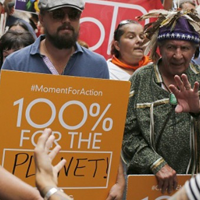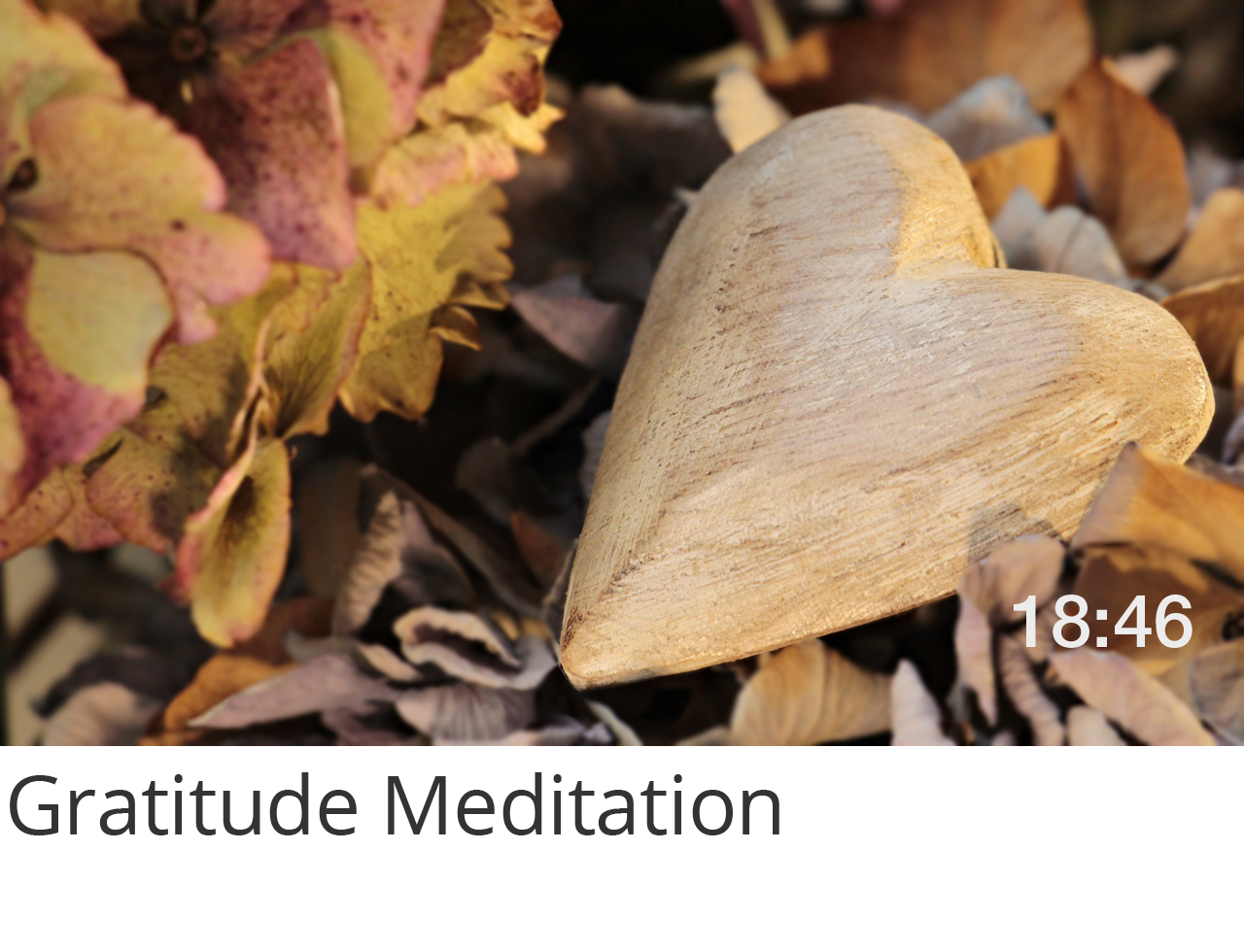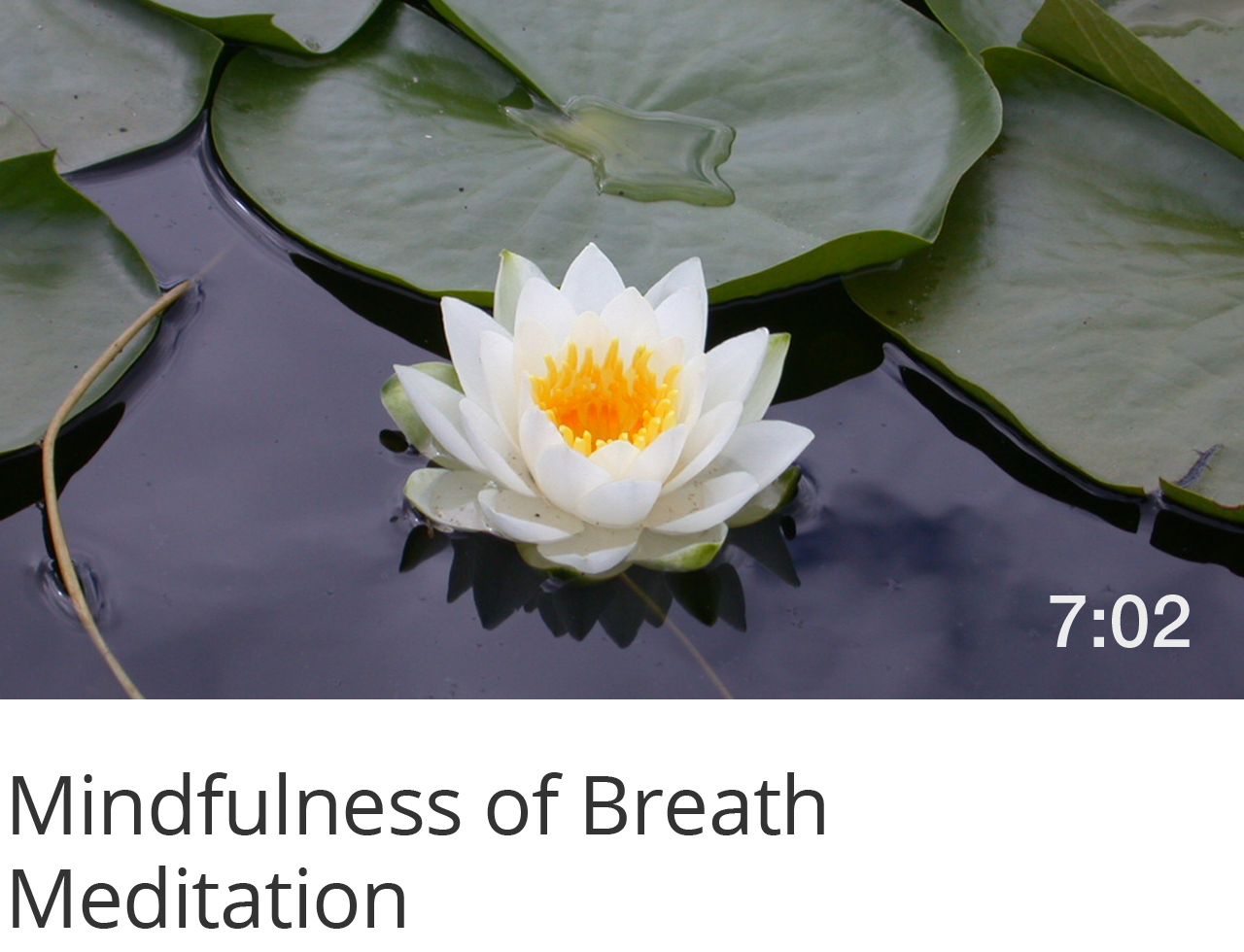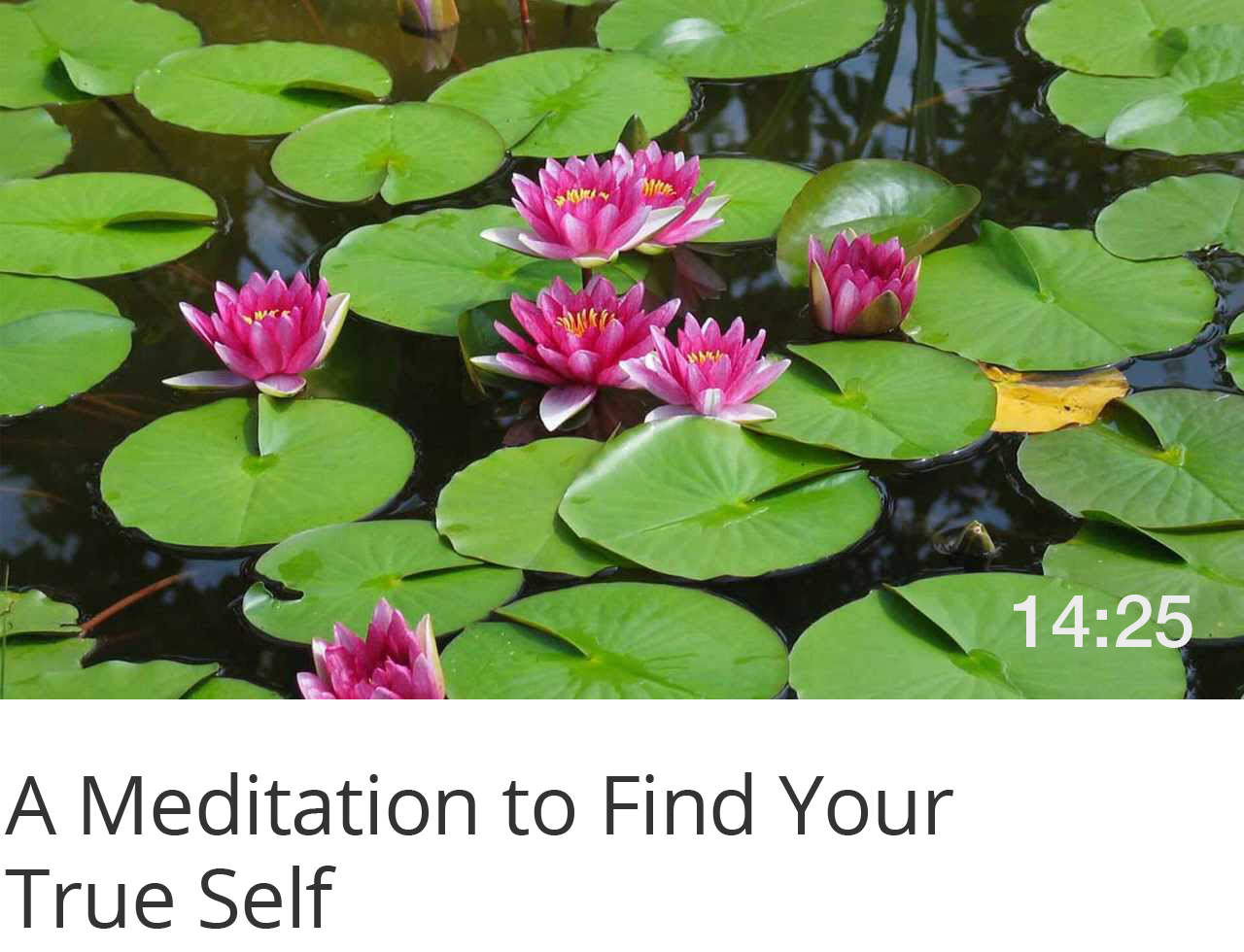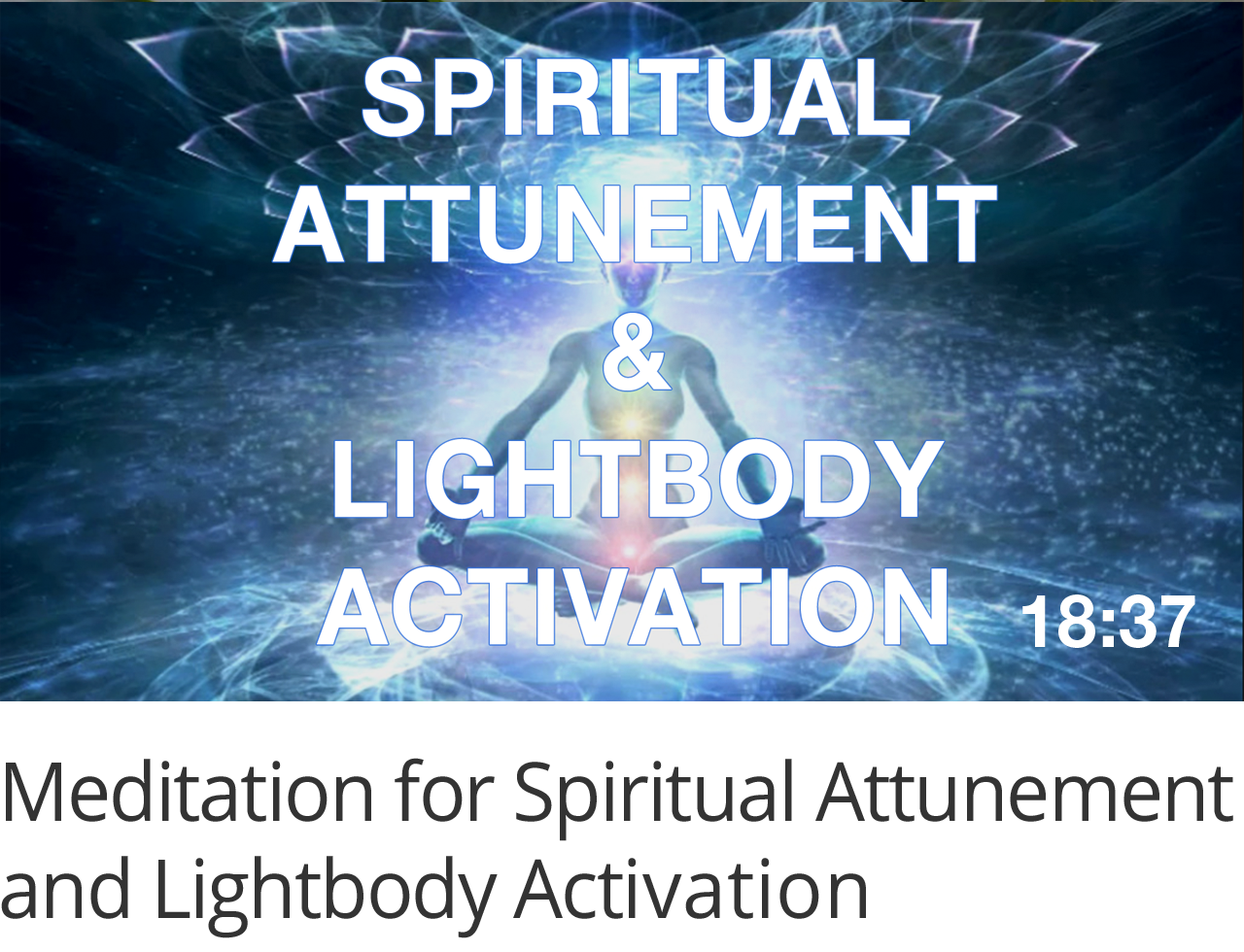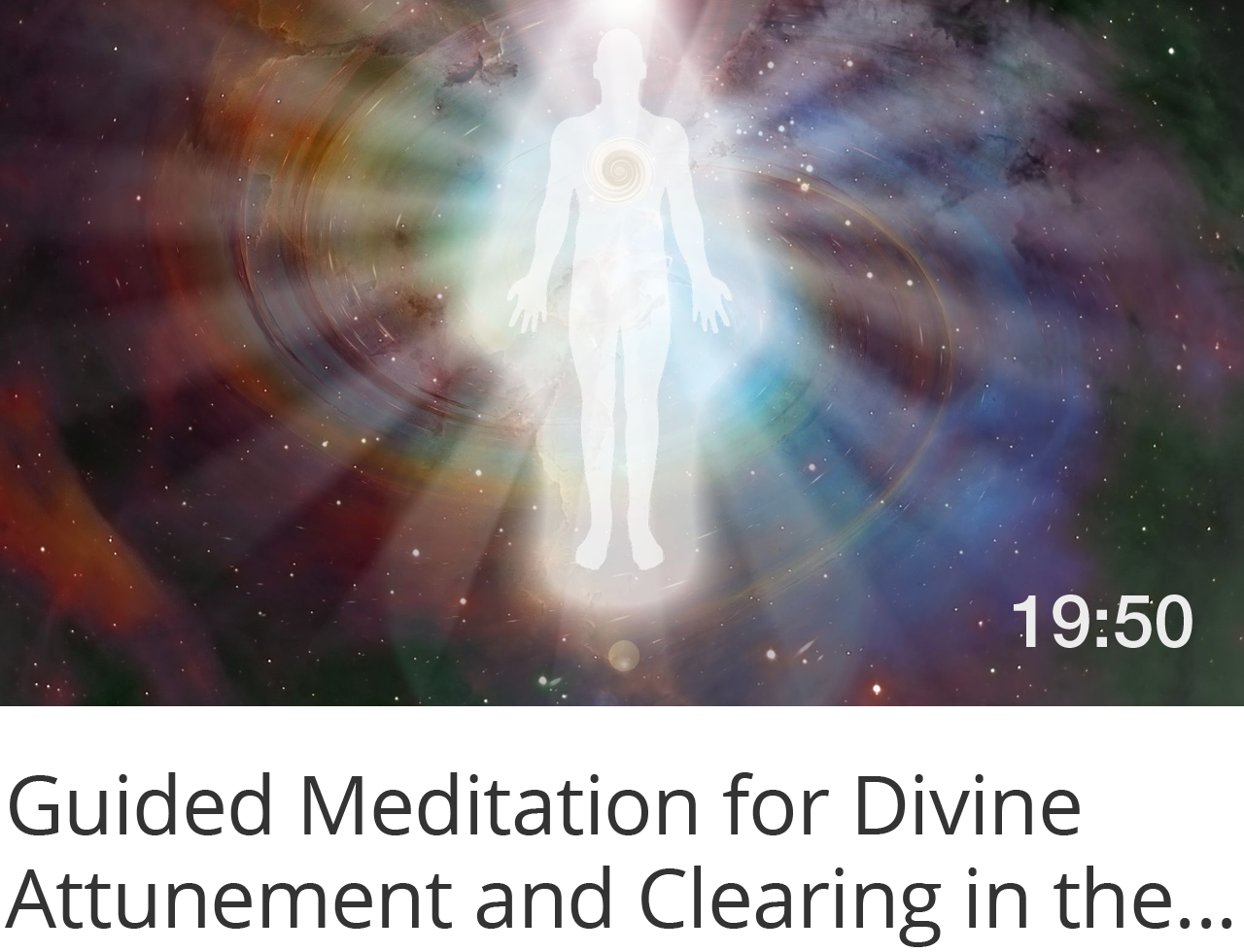Climate Change has become the new catchphrase in green politics. It is important to understand what the real ecological challenges are that we are facing and their root causes, and to weed out the propaganda that is often used to push through agendas and drive up profits for big businesses that are exploiting the need to embrace cleaner technology. We also need to be clear about what the solutions to our ecological challenges are. This post will address these issues and the recent developments at the 2014 UN Climate Summit and the movement towards divestment from fossil fuels that even the Rockefeller heirs are now embracing.
What is Climate Change?
The term climate change refers to changes in the climate over long periods of time, often as a result of human activity such as the burning of fossil fuels.
First off, it is important to realise that the Earth’s climate varies naturally and is cyclic, and so has always been changing. This can be seen by reviewing evidence such as ice core samples from Antarctica that hold a record of temperatures going back hundreds of thousands of years. What many people do not realise is that we are still living in an ice age—which is why ice sheets cover Greenland and Antarctica. Within an ice age there are smaller, regular cycles of warm temperatures (interglacial periods) and cold temperatures (glacial periods), and we are currently coming out of a peak in an interglacial cycle.
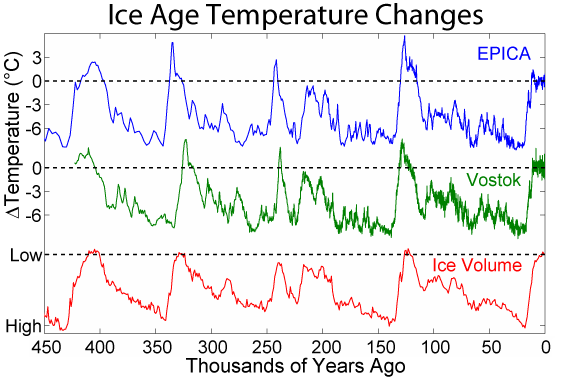
Interestingly, ice core samples reveal that the Earth is currently cooler than it was in the Medieval period and in the previous interglacial period, and that temperature change actually drives changes in carbon dioxide levels, rather than the other way round.
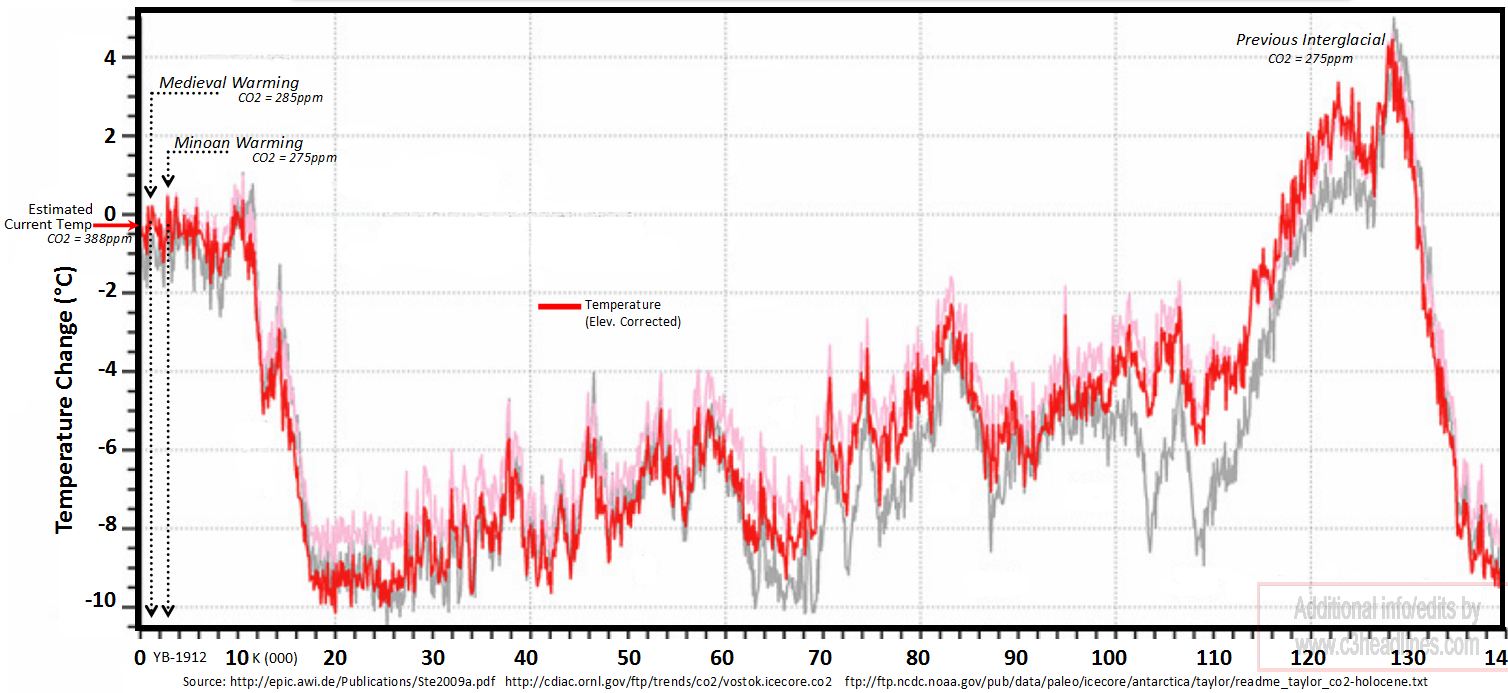
While climate change is clearly a natural phenomenon, it is not clear to what extent the pollution caused by the burning of fossil fuels adds to temperature rises.
Fossil Fuels are Unsustainable
The use of fossil fuels for energy is clearly unsustainable:
- the burning of fossil fuels produces gases that harm life
- oil spills harm marine life
- fossil fuels are non-renewable and feed a scarcity-based economy
- extracting fossil fuels is polluting, harmful to health, and ecologically destructive
- wars are fought over the competition for oil
The current extreme practice of hydraulic fracturing (fracking) represents a desperate attempt to extract fossil fuels by forcing the earth’s inner structures to fracture under hydraulic pressure to release gas or oil. The associated contamination of air and water, the exposure to radiation, and the health consequences of infertility, birth defects, respiratory diseases, and cancer, have been well documented.
Moving Away from Fossil Fuels
On Monday 22 September, on the eve of the 2014 UN Climate Summit, in a huge symbolic move for the world, the Rockefeller Brothers Fund—a charity created by the heirs of John D Rockefeller of Standard Oil—announced that it is joining a coalition of over 700 investors, including individuals, universities, churches and nonprofit foundations, to divest from investments in fossil fuel companies. This shift of investment currently totals 50 billion dollars.
The burgeoning divestment movement and the climate marches that occurred this month to coincide with the 2014 UN Climate Summit—in which 400,000 people demonstrated in New York, along with thousands more around the world—show that the desire to move away from fossil fuels is now growing stronger.
The Real Issue Behind Our Ecological Challenges
While the UN is focusing on preventing climate change, it is important not to get lost in the thinking and rhetoric of a centralised body of mainstream society that too easily gives birth to agendas for the greater centralisation of society and the loss of individual, community, and national autonomy—which are critical for enabling us to change our lives. It is also important to realise that climate change is an emotive topic that provokes anxiety and ideas of catastrophe, and thus becomes a drive for fuelling the profits of an emerging multi-billion dollar industry, which may in some cases be more interested in money than authentic ecological change. It is wise to be aware of the real motives behind movements at all times—particularly when global policies are involved—and to make authentic life choices for ourselves that promote sustainability and ecological wellbeing.
So what is the real issue behind our ecological challenges? We can not change the natural cycles of the Earth and its interaction with the sun. Like it or not, our planet goes in and out of ice ages, glacial periods, and interglacial periods. What is more the issue is the cause of our activities that lead to pollution, deforestation, soil erosion, species extinction, and habitat loss. This cause has nothing to do with the lack of policies or funding, for these are mere symptoms of the cause. Rather, the cause of our ecological challenges is in the first instance our dissociation from our ecological self, and in the second instance our entrapment in mass society.
The ecological self is the extension of our self into nature, along the pathways that interconnect life. Our dissociation from our ecological self occurs when we no longer identify with the natural world, and withdraw into an artificial, narrow sense of self, in which we feel separate from the rest of life. We then become trapped in the mind’s reactivity, addictive patterns, and distractions. Bizarrely, we even start to deny our natural roots, and build up synthetic, concrete worlds around us, plug our minds into the virtual realities of televisions, computers, and smart phones, and adopt values that only support the Spectacle of Materialism. Because we are dissociated from the natural world, and are identified with materialistic values, including economic growth and materialism, we devalue the natural environment, and ecological destruction then ceases to matter so much as the money we make, the comforts we receive, the image we portray, or the security of our makeshift reality.
Our entrapment in mass society occurs when we are not centred in our true self and are not supported by authentic, autonomous, and strong communities. When this is the case, we abdicate our responsibilities to hierarchical powers, giving away our power to create our lives to them, and defer to their authority. We also begin to absorb the dominant values of those powers through the media and other aspects of mass culture. Our entrapment in the spectacle of materialism is the most insidious example of this, where we become more and more identified with material aspects of life, react to the glamour of advertising and entertainment in the mass media, and adopt patterns of mass consumption. We literally become a cog in the machine of mass society, serving the values that sustain it, and feeding it with our energy. In turn we lose our connection with the natural world, and lose our sense of power to change our lives, leaving world change to political leaders, lawmakers, or big businesses that are themselves stuck in the very system that is causing the unsustainable problems we now face.
The Solution to Our Ecological Challenges
The 2014 UN Climate Summit called for a shift to energy-efficient appliances, a reduction in energy consumption, a reduction in pollution, and a greater shift to recycling. Inevitably, leaders held back on making new commitments to cut emissions or to fund these changes in developing countries, leaving it to business, cities and campaign groups to produce the real action. However, the issues of reclaiming our authentic, ecological selves through self-development, and of building authentic, decentralised, and sustainable communities in place of our unsustainable centralised mass society, were probably never discussed at the summit, which itself is a globally centralised manifestation of mass society. It is commonplace for anomalies that reveal the inadequacy of the worldview driving mass society to be omitted from its discourse.
The movement for divestment, in which investments are pulled from fossil fuel companies, is a good step in the right direction when confronting our ecological challenges. If we do not want to support fossil fuel companies that harm the Earth, we logically should not support them with out money, and instead sponsor cleaner, ecological sources of energy with our investments and purchases. However, the use of fossil fuels is merely one of many practices that can harm life and threaten our ecological wellbeing. Rather than dealing only with one or multiple end results of a root cause, it is much better to deal also with the root cause itself.
Along with being more ecologically conscious about our investments and purchases, and withdrawing funds from companies and practices that are unsustainable, the solution to our ecological challenges requires that we:
- Commit to self-development and become centred as individuals in the true self that is naturally ecological, compassionate, and life-supportive. Mindfulness can be used to withdraw our attention from identifications, attachments, and distractions, and to direct it onto our true self, which is our centre of being behind our thoughts and preoccupations. Old patterns of thinking and behaving that are destructive can then be released, along with our attachment to the spectacle of materialism, and we can grow in awareness to choose more authentic, ecological ways of living. For more details on the practice of mindfulness for authentic living, read my posts 9 Powerful Benefits of Mindfulness and How Mindfulness Gives You Freedom. For more details of becoming centred in the authentic, ecological self, read my posts 9 Ways to Honour the Earth, 3 Ecological Principles for Authentic Living, and Finding Your True Self.
- Develop authentic, autonomous, local communities with their own local economy that fully integrate with their bioregion. A natural outcome of being centred in the authentic, ecological self is to develop authentic, autonomous, local communities as our support system. Mindfulness, which returns control of our attention to us, teaches us that we can only control what we are aware of. By drawing in our economic pathways from the global or national scale to the community scale, we can observe the results of our actions, and use this feedback to live ecologically. When the total users of an economy are in the community itself, responsibility and accountability for actions can be owned. What harms a community’s local environment harms the local community itself. In fact, in authentic local communities, the separation between humans and nature is healed as the human community becomes integrated with its bioregion so that humans and the local ecology coexist in supportive, natural community. For more details of developing authentic local communities, using local economies, and integrating with the local bioregion, read my posts Why We all Need Authentic Community, How You Can Start an Authentic Community, Understanding the Local-Global Balance, and 8 Good Reasons to Use a Local Complementary Currency.
In my post The Three Key Ingredients of World Change I talk about how mindfulness, community-building, and ecological living are necessary tools of self-realisation for creating a more sustainable, authentic world. Without the power of authentic community to support authentic living, we lack the resources and cooperation to build a more sustainable, healthy world, and our authentic vision becomes idealistic, groundless, and frustrated in its expression.
To finish, it is important to state that one of the practices that perpetuates unsustainable living is the use of a debt-based money system, which causes us to pursue economic growth because of the financial scarcity it creates. A debt-free money system as an alternative to a debt-based money system is therefore essential to be using if we are to live sustainably, and we can begin this in our local communities as we create local currencies. For more on this, see my post Debt-Free Money v Money-as-Debt.
Like this article? Spread the word by sharing the link.

